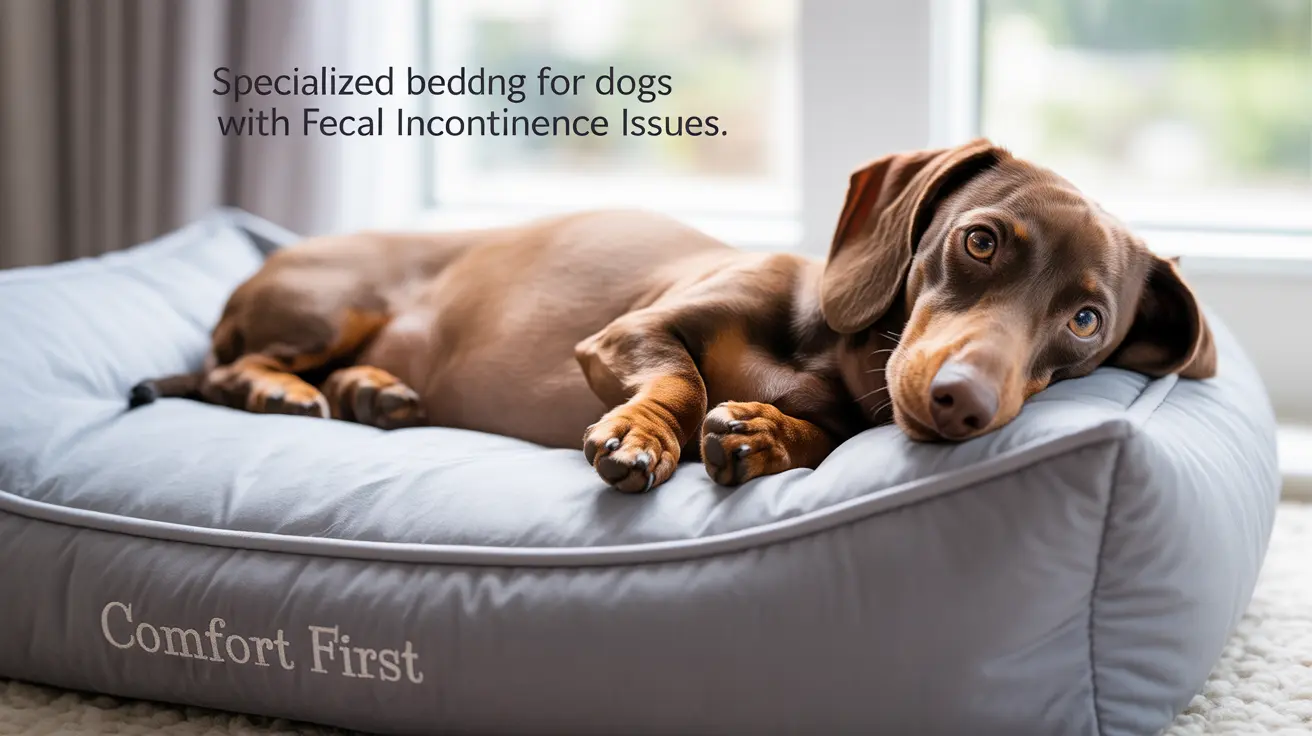Finding that your dog has pooped in their sleep can be both concerning and distressing. This involuntary behavior, known medically as fecal incontinence, often signals an underlying health condition that requires attention. Understanding why this happens and what it means for your pet's health is crucial for proper care and management.
This comprehensive guide will explore the various causes of sleep-related fecal incontinence in dogs, available treatments, and when to seek veterinary care. Whether you're dealing with this issue or want to be informed, we'll cover everything you need to know about this challenging condition.
Common Causes of Sleep-Related Fecal Incontinence
Neurological Disorders
Many cases of sleep-related fecal incontinence stem from neurological conditions that affect the nerves controlling the anal sphincter. Conditions like degenerative myelopathy, intervertebral disk disease (IVDD), and spinal cord injuries can disrupt the normal nerve signals that maintain bowel control. These conditions often require immediate veterinary attention for proper diagnosis and treatment.
Age-Related Issues
Senior dogs frequently experience fecal incontinence due to weakening muscles and cognitive decline. As dogs age, they may develop conditions like canine cognitive dysfunction syndrome, which can affect their awareness of bodily functions, including the need to defecate.
Identifying and Diagnosing the Problem
Physical Signs and Symptoms
Dogs with fecal incontinence may show various symptoms beyond sleeping accidents, including:
- Unaware elimination while walking
- Difficulty controlling bowel movements when awake
- Visible straining or discomfort
- Changes in regular bathroom habits
- Soiling in unusual places
Veterinary Diagnosis
Your veterinarian will likely perform several tests to determine the underlying cause, including:
- Physical examination
- Neurological assessment
- Blood work and urinalysis
- Imaging studies (X-rays or MRI)
- Specific tests for suspected conditions
Treatment Options and Management
Medical Interventions
Treatment varies depending on the underlying cause but may include:
- Medications for specific conditions
- Anti-inflammatory drugs
- Nerve-supporting supplements
- Surgery in some cases
- Physical therapy when appropriate
Home Care Strategies
Managing fecal incontinence at home requires patience and dedication:
- Regular bathroom breaks
- Waterproof bedding
- Regular cleaning and hygiene maintenance
- Diet modifications as recommended
- Creating a comfortable, accessible environment
Prevention and Long-term Care
While not all causes of fecal incontinence are preventable, certain measures can help reduce risks:
- Regular veterinary check-ups
- Maintaining a healthy weight
- Appropriate exercise
- Proper nutrition
- Early intervention when problems arise
Frequently Asked Questions
Why does my dog poop in their sleep and seem unaware of it?
Dogs who poop during sleep are usually experiencing fecal incontinence due to neurological issues, muscle weakness, or cognitive dysfunction. They're typically unaware because the normal nerve signals controlling bowel movements are disrupted.
What medical conditions can cause a dog to involuntarily poop during sleep?
Several conditions can cause sleep-related fecal incontinence, including neurological disorders, spinal injuries, anal sphincter weakness, cognitive dysfunction, and certain infections or inflammatory conditions.
How do veterinarians diagnose the causes of fecal incontinence in sleeping dogs?
Veterinarians use a combination of physical examinations, neurological assessments, blood tests, imaging studies (X-rays, MRI), and sometimes specialized tests to determine the underlying cause of fecal incontinence.
What treatments or home care options are available for dogs who poop while sleeping?
Treatment options include medications, surgery, dietary changes, and supportive care. Home management involves waterproof bedding, regular cleaning, scheduled bathroom breaks, and maintaining good hygiene.
When should I seek veterinary help if my dog is accidentally pooping during sleep?
Seek veterinary attention immediately if your dog starts having sleep-related accidents, especially if accompanied by other symptoms like changes in appetite, mobility issues, or general behavior changes. Early intervention often leads to better outcomes.






